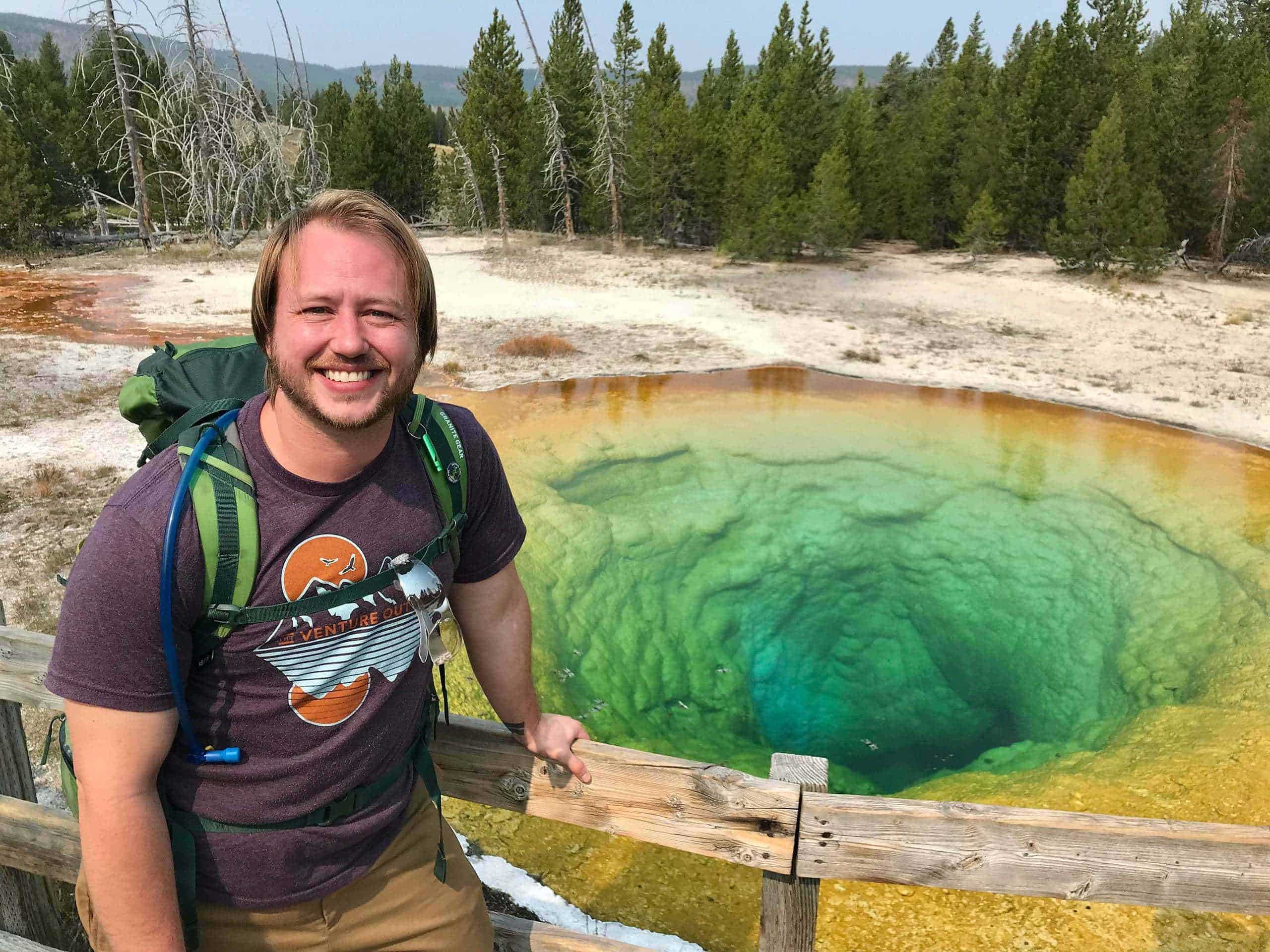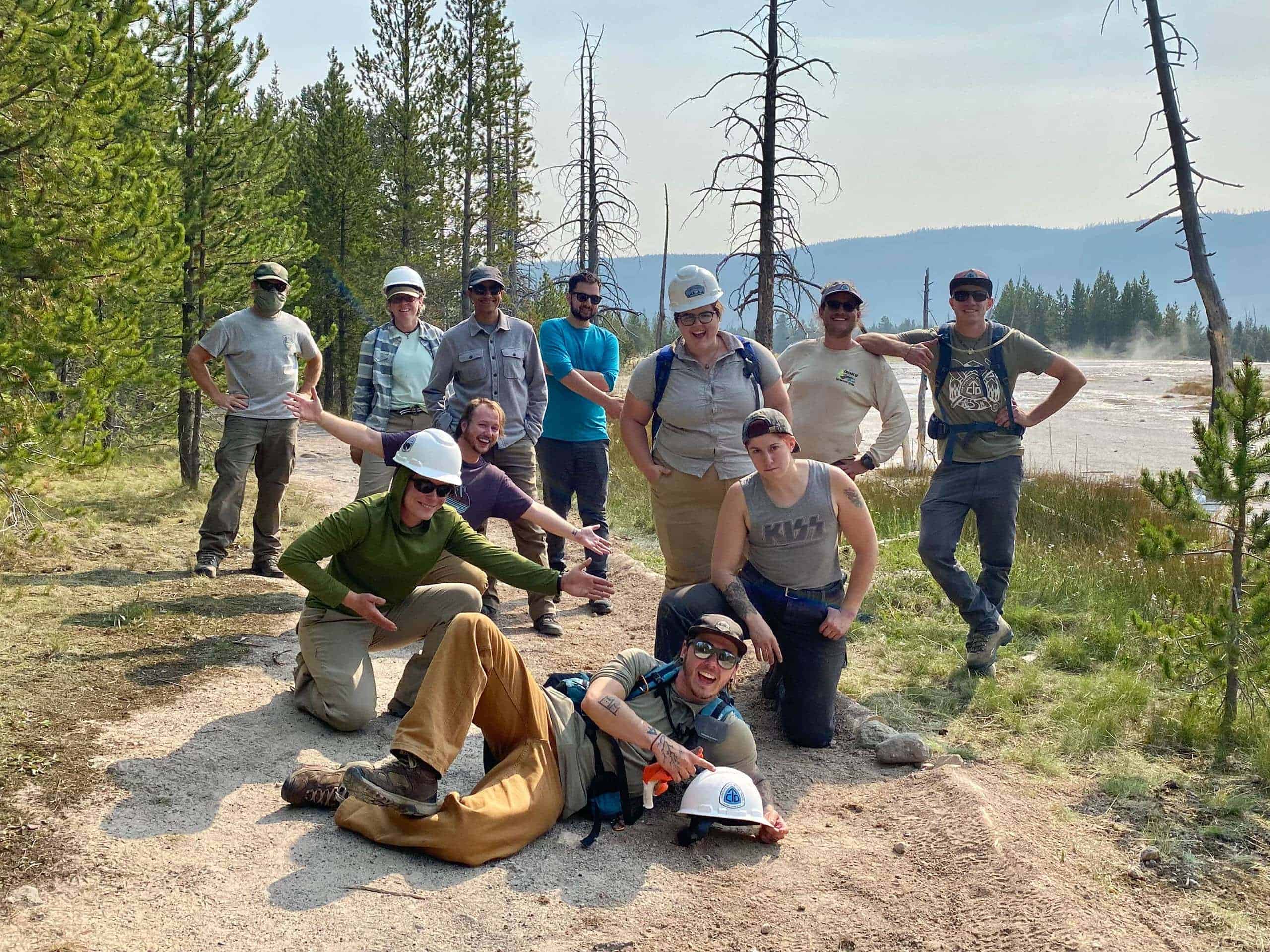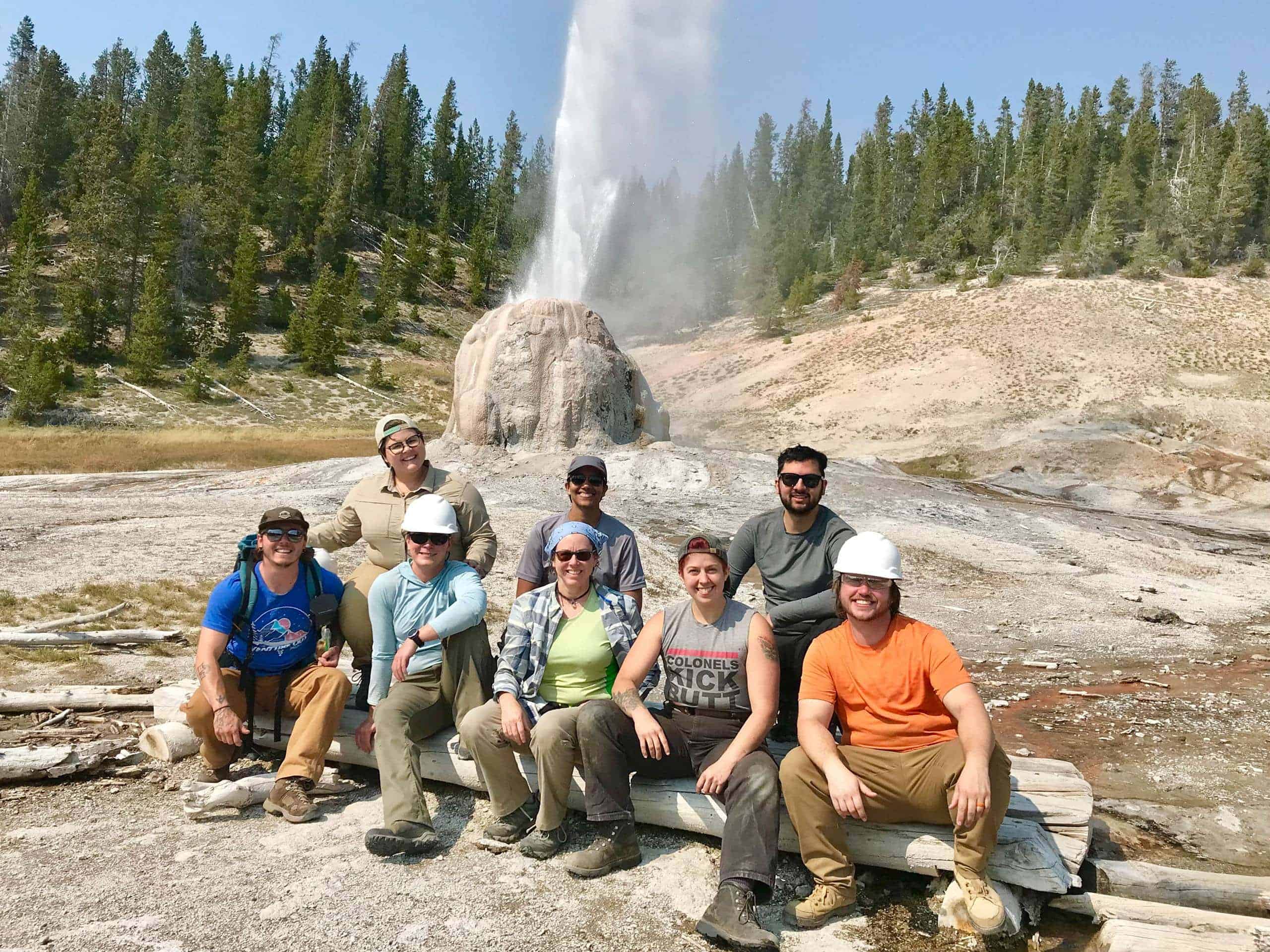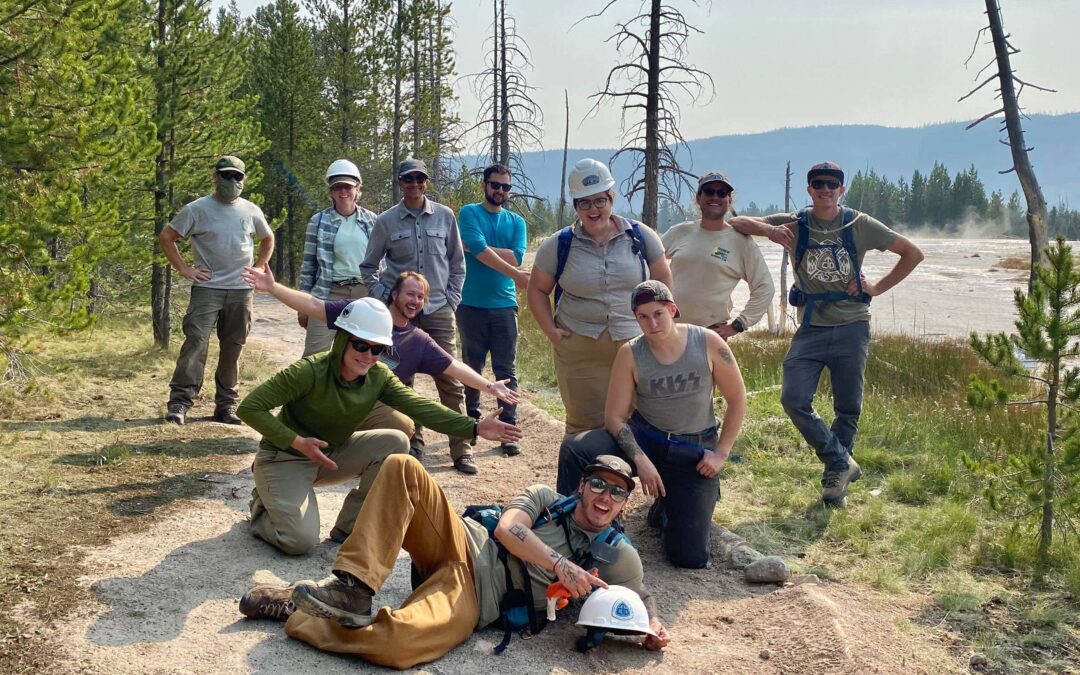The Continental Divide Trail (CDT) unites us. From Gateway Community residents to thru-travelers, and everyone in between, our diverse community is connected by our mission to protect the CDT. We are showcasing stories of the people and places that make up our community with our series, Voices of the CDT. Each month, look out for new stories that highlight these diverse experiences, histories, and faces, against the backdrop of the awe-inspiring Continental Divide.
INTERESTED IN SHARING YOUR CONNECTION TO THESE LANDSCAPES? SEND US YOUR STORY AT [email protected] FOR A CHANCE TO BE FEATURED!
The Venture Out Project envisions a world where queer, trans, and LGBTQ+ youth and adults create community, develop leadership skills, and gain confidence through the shared experience of outdoor adventure and physical activity.

CDTC: Can you give CDTC a brief overview of who you are and what you do in your career?
Oliver Reitz: My name is Oliver Reitz (he/him pronouns) and I am the Operations Coordinator for The Venture Out Project. I handle all of our registration for both day events and overnights, including one-on-one chats with every participant who comes on an overnight trip with us. Other parts of my job include helping with the inclusivity trainings we offer to our brand partners and other outdoor organizations, managing our internal DEI budget, instructing overnight trips and leading day hikes, and jumping in wherever I’m needed for other tasks.
CDTC: Can you give CDTC and our audience a brief overview of the Venture Out Project?
OR: The Venture Out Project (TVOP) is a non-profit that offers wilderness trips and outdoor adventures to the LGBTQ+ community. We offer everything from day events like hikes, ice skating, fly fishing, and even ax throwing, to longer overnight trips like backpacking, canoe camping, river rafting, and forest bathing. TVOP’s goal is to create community, and we use the outdoors to do it.
CDTC: What is your favorite part of the Venture Out Project?
OR: My favorite part of being involved with The Venture Out Project is getting to see participants really get to explore the outdoors in ways they never thought possible.
Most of our participants fall into one of two categories (though we’re really not about binaries here) – those who are new to an outdoor activity or have had bad experiences in the past and want a safe space to try it, and those who are experienced in the activity but don’t know people in their own life who hold similar identities who they can adventure with. For the people who are really wanting to try something new, TVOP offers a chance to do that without having to purchase all of their own gear or deal with many of the microaggressions that sometimes come with other group outings. For both the beginners and those more experienced, they get to form bonds with other people who they feel at ease around. To be in an environment where everyone else with you is also queer helps people feel safe right off the bat, so they can really open up and be their true selves. That allows for huge growth in both one’s relationships with other people and their relationship to nature.
CDTC: Do you have a favorite memory or story of working with the Venture Out Project?
I don’t know that I have one specific time or moment that stands out above the rest, but I always find myself coming back to a phrase that I’ve heard from multiple participants on multiple trips — “I didn’t know how much I needed this until I got it.” To me, that’s what makes The Venture Out Project so special. This is a life-changing experience for a lot of our participants, and seeing that change happen, in real time, is always my favorite memory.

CDTC: What brings you the most joy when recreating outdoors?
OR: When I’m outside, I feel refreshed, like all of my day-to-day worries can just melt away. For me, being outside helps my anxiety, and hiking makes me feel capable of doing some really cool things. When I’m swimming in a river or sitting in front of a waterfall, I just get a feeling in my core that says everything is ok. I really want more people to be able to feel that.
CDTC: How are you connected to the Continental Divide Landscape?
OR: I’ve only been to the Continental Divide a handful of times, but I think everyone can feel a kind of connection to the landscape there. As someone living in New England, there is a tightness to the land here. Everything is close together — the land is full of small hills and tiny mountains. Even the trees feel close together, which is comforting to me. The Continental Divide is comforting in a completely different way. There’s an openness to it, and the wide open spaces are freeing. The land is sprawling and grand. (The sky is too!) I don’t feel held and comforted like I do in New England. I feel free and confident. Free to explore, free to just be. The big mountains and open air make me feel like the land trusts me to choose what I can explore and what I can mentally take in (and there’s a lot to take in).
CDTC: How is the Venture Out Project Connected to the Continental Divide Landscape?
OR: Last year, TVOP collaborated with the CDTC to run a week-long Queer Trail Work trip in Yellowstone National Park. The trip was amazing! We and our participants got to explore the park, while also getting to feel the satisfaction of really being a part of Yellowstone. We had great leaders and trail work organizers who shared the importance of the work we were doing, and we got to hear so many stories about the land and its history. That trip was truly special, and we hope to do something similar in the future.
CDTC: Anything else you would like to share with us?
OR: There’s a lot to say about how healing the outdoors can be and about how many different types of people have been made to feel like the outdoors just isn’t for them — people who probably need the healing powers of nature the most. The narrative in the US about who we see in the outdoors is changing, but there are still barriers that exist for people of color, queer people, people who are differently abled, fat people, and especially people who are more than one of the above. There are financial barriers, social barriers, even physical barriers that make recreating outdoors difficult for so many people. This land does not belong to us. We belong to this land. I think if more people could just realize that, then maybe we could start being a little kinder to both this land and each other, because we all belong here, together.
.


